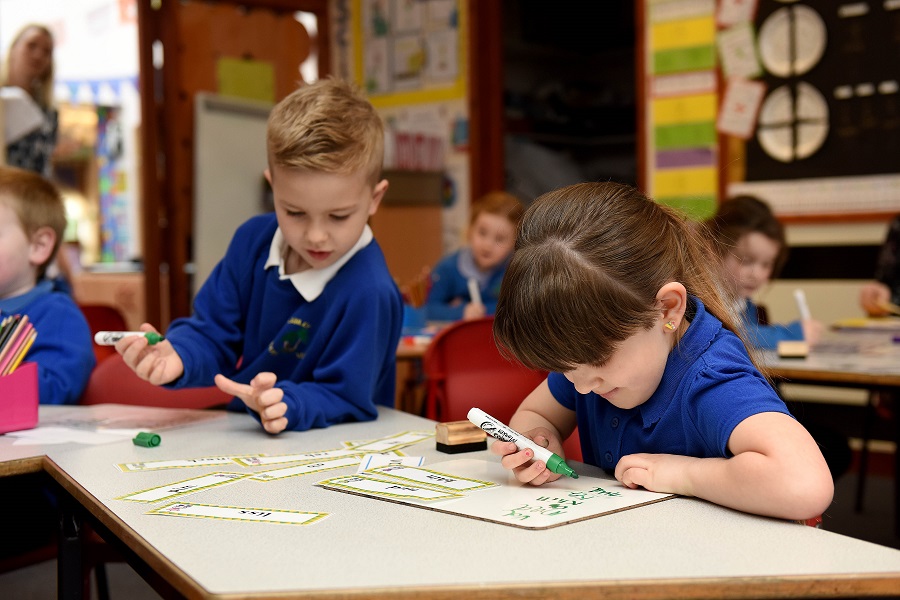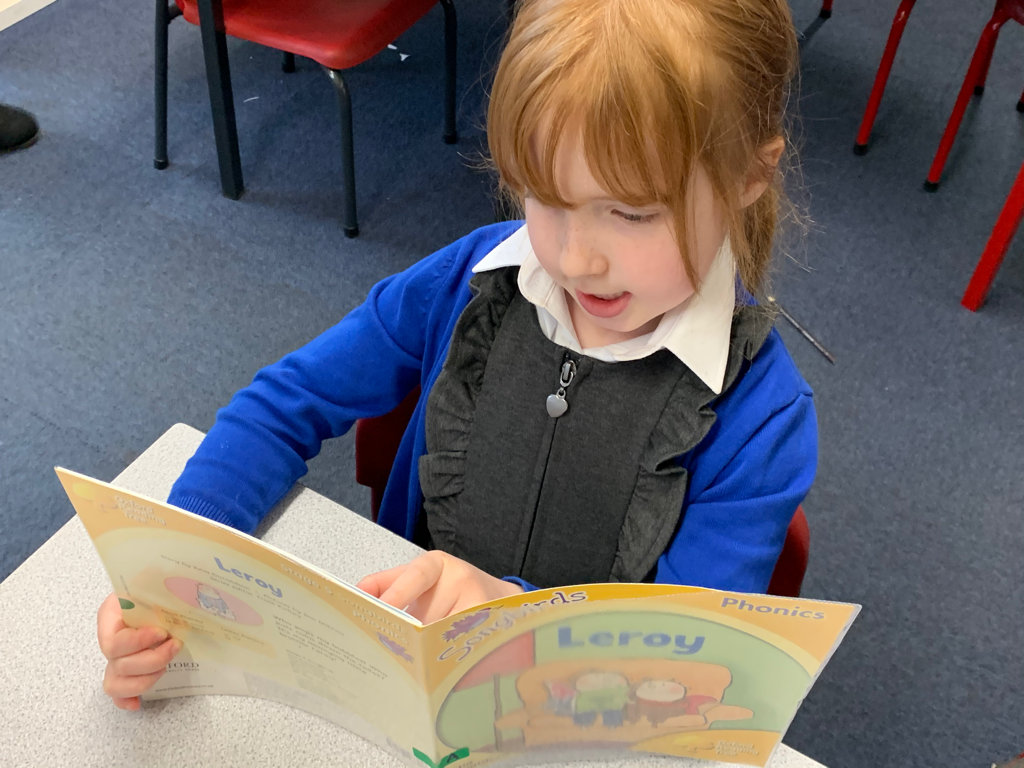Pupils in EYFS and Key Stage 1 follow the Bug Club Phonics programme for high quality phonics teaching.
Bug Club Phonics is one of the DfE’s approved phonics teaching programmes and aims to help all children in our school learn to read by the age of six in a fun and accessible way. Following its own proven progression, the whole school programme matches the National Curriculum and Early Learning Goals.
On entry into school, parents of EYFS pupils are invited to attend meetings to understand the phonics programme and the support available for them for reading and spelling at home. Communication is maintained throughout KS1 using home-school diaries with specific phonic guidance related to the current reading book.
Bug Club phonics is a six phase teaching programme designed to teach children how the alphabet works for reading and spelling.
Phase Two is taught on entry to school in EYFS and teaches at least 19 letters. The purpose of this phase is to move children on to blending and segmenting with letters. During this phase they will be introduced to reading two-syllable words and some high frequency 'tricky' words.
Children in EYFS continue onto Phase Three. The purpose of this phase is to teach another 25 graphemes. They will also learn letter names, read some more tricky words and also begin to spell some of these words.
Children entering Phase Four will consolidate their knowledge of graphemes in reading and spelling, by learning to read an spell words containing adjacent consonants and polysyllabic words.
At Phase Five, children broaden their knowledge of graphemes and phonemes for use in reading and spelling. They learn new graphemes and alternative pronunciations for these where relevant. When spelling, they will learn to chose the appropriate graphemes to represent phonemes and begin to build word-specific knowledge of the spellings of words.
During Phase Six, children become fluent readers and increasingly accurate spellers.
It must always be remembered that phonics is the step up to word recognition. Automatic reading of all words - decodable and tricky - is the ultimate goal.
Details of the expected progress for a pupil at Lawley can be found below in the Phonics Progression Document.


